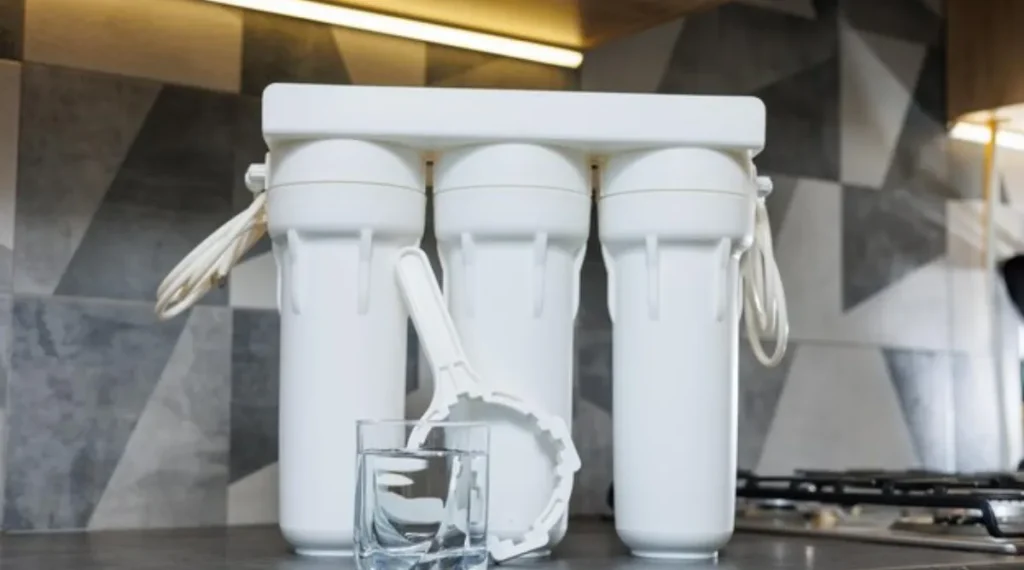A Comprehensive Comparison of the Best Whole House Water Filters for Purity and Efficiency
Regarding your home’s water, the quality of the water you drink every day can very much affect your health and well being. Between cooking and bathing, the water you use is vital to your daily life. That’s where the top whole house water filters come into play. Additionally, these systems can be installed in your entire home, meaning every sink produces pure, safe, and clean water.
In this article, we will walk you through the best-selling and best whole house water filters, enabling you to select the ideal system that will suit your domestic needs.
What are Most Best Whole House Water Filters?
Before we get into the details, it’s important to know exactly what best whole house water filters are and how they function. These systems filter all the water that comes into your home, providing extra protection from contaminations, chemicals, and dangerous microorganisms. While point-of-use filters only treat water at one faucet, whole house water filters treat the water for the whole home, including the taps, showers, and appliances.
The finest whole house water filters are built to solve many different water quality problems, such as chlorine, lead, sediment, hard minerals, and even bacteria. A whole house water filter solution is the ultimate in water purification, delivering clean, safe water to your family and ensures the long life of your plumbing system & appliances.
Best Whole House Water Filters System Types
When choosing the right system for your home, its important to understand the different types of whole house water filters. Each provides particular advantages, based on your water quality and requirements. Here are some of the best whole house water filters that are in-demand for their efficiency and efficacy.
Activated Carbon Filters
One of the most popular types of best whole house water filters options is the activated carbon filter, which removes many different contaminants including chlorine, hen pesticides, herbicides and volatile organic compounds (VOCs). They function via a process known as adsorption, wherein contaminants adhere to the activated carbon’s surface.
If your water smells bad (a common problem with municipal water supplies), these filters can greatly enhance the taste (and smell) of the water. They serve as an energy and money-saving option that requires both relatively low maintenance and investment.
Reverse Osmosis Systems
For those who desire a more comprehensive filtration process, reverse osmosis (RO) systems provide this level of effectiveness. Employing a semi-permeable membrane, these systems filter out a broad spectrum of contaminants such as salts, heavy metals, and dissolved solids. They also kill harmful microorganisms such as bacteria and viruses, making them a good choice for homes in communities with contaminated water.
RO systems do waste a significant amount of water during filtration though, and they are more complex, meaning they usually need professional installation. For the highest level of purification, especially for well water or areas with known contaminants, reverse osmosis is likely your best bet.
Ultraviolet – UV Water Purifiers
Some purifiers use ultraviolet light to disinfect the water they process, killing off harmful microorganisms, including bacteria, viruses and some types of parasites. UV purifiers, unlike activated carbon or reverse osmosis systems, do not eliminate any chemicals or sediment from the water. They are terrific for homes where biological contamination is an issue instead.
These devices can even be used alongside other filtration techniques like:UV water purifiers are a great last line of defence. Systems such as this do a good job of making sure your water is microbiologically-safe, giving peace-of-mind to both you and your those special circle of others of which you care so much, children, pregnant and nursing mothers and those with compromised immune systems.
Water Softeners
Where water hardness is an issue, a water softener should be an integral part of your whole house filtration unit. Well water is more likely to be hard, meaning it contains high levels of minerals, such as calcium and magnesium, that can cause scaling in pipes, water heaters, and appliances. That can make your plumbing less efficient and appliances last a shorter time.
Water softeners remove these hard minerals in exchange for sodium ions, which “soften” the water and avoid mineral buildup. Though water softeners do not get rid of contaminants, they are an invaluable tool in places with hard water issues.
If you wanna get best recommendations about it, visit here and look for what suits you.

Important Features to Have When Picking the Best Whole House Water Filters
Choosing the right whole house water filters isn’t just about getting the most expensive or most popular brand. There are a number of factors to consider to ensure you select the right system for your household.
Water Quality
Assessing the water quality in your area is the first step in selecting a filter that’s right for you. Municipal water may have chlorine, chloramine and other chemicals; well water may have bacteria, heavy metals or sediment. If you’re unsure about the quality of your water, consider having your water tested for contaminants that need to be addressed.
Filter Capacity
Filter capacity is the amount of water that the system can treat before it requires maintenance. Larger households typically use more water so select a system that can handle a higher capacity. Evaluate how many people live in your home and how much water you use to make sure that the system you choose will be adequate for your needs.
Installation and Maintenance
Whole house water filters vary in installation difficulty and maintenance level, with carbon filters being some of the easiest to install and maintain. Some like reverse osmosis systems may need to be installed by a professional and serviced over time. Make sure you pick a system that fits your budget and how much upkeep you’re willing to do.
Budget
How much does a whole house water filter cost? The cost of reverse osmosis systems and UV purifiers is generally higher than that of activated carbon filters, and water softeners can also add to the cost. Be sure to create a budget that takes into account both the upfront installation cost and recurring maintenance costs.
FAQs
How to determine if you need a whole house water filter?
A whole house water filter provides peace of mind if your water tastes bad, smells bad, or you’re worried about contaminants like chlorine, bacteria or lead. To know which kind of filter suits you best, you can also test your water.
How frequently should I change out my entire house water filter?
How often filters should be replaced varies depending on the system. Activated carbon filters can last anywhere between six and twelve months, while a reverse osmosis system or UV purifier may need new filters every one to two years. Note: Always adhere to the recommendations given by your manufacturer for best performance.
Can I do the installation of a whole house water filter myself?
Certain filters, like activated carbon systems, can be installed by home owners with basic plumbing knowledge. But more complex systems can include reverse osmosis or UV purifiers, which are best professionally installed. Always refer to your product manual for installation instructions.
How much is a whole house water filter?
Whole home water filters range in price from budget-friendly to premium. Generally speaking, basic activated carbon filters are the cheapest, while reverse osmosis systems and UV purifiers are pricier. However, these upfront costs should be weighed against the long-term benefits of better water quality and appliance protection.
Will a whole house water filter make my water taste better?
Yes, most good quality whole house water filters, especially activated carbon filters, will remove chlorine, sediment, and other impurities present in the water, making it taste fresh. Whole house water filters are great options for odor and taste issues.

Conclusion
For homeowners looking to improve their water quality and safeguard their family’s health, investing in the best whole house water filters is a smart choice. No matter what kind of system you need, from activated carbon filters to reverse osmosis, UV purifiers, and even water softeners, you will find a solution for your home and water condition. If you take into account the quality of your water, the capacity of the filter and how easy it is to maintain, you can choose the right system that will provide you with clean, safe, and great-tasting water throughout the house.
No matter which system you select, the advantages of cleaner water, appliances that last longer, and improved health are worth their weight in gold. use experts and research to find the whole house water filter with your need for purity and efficient.

